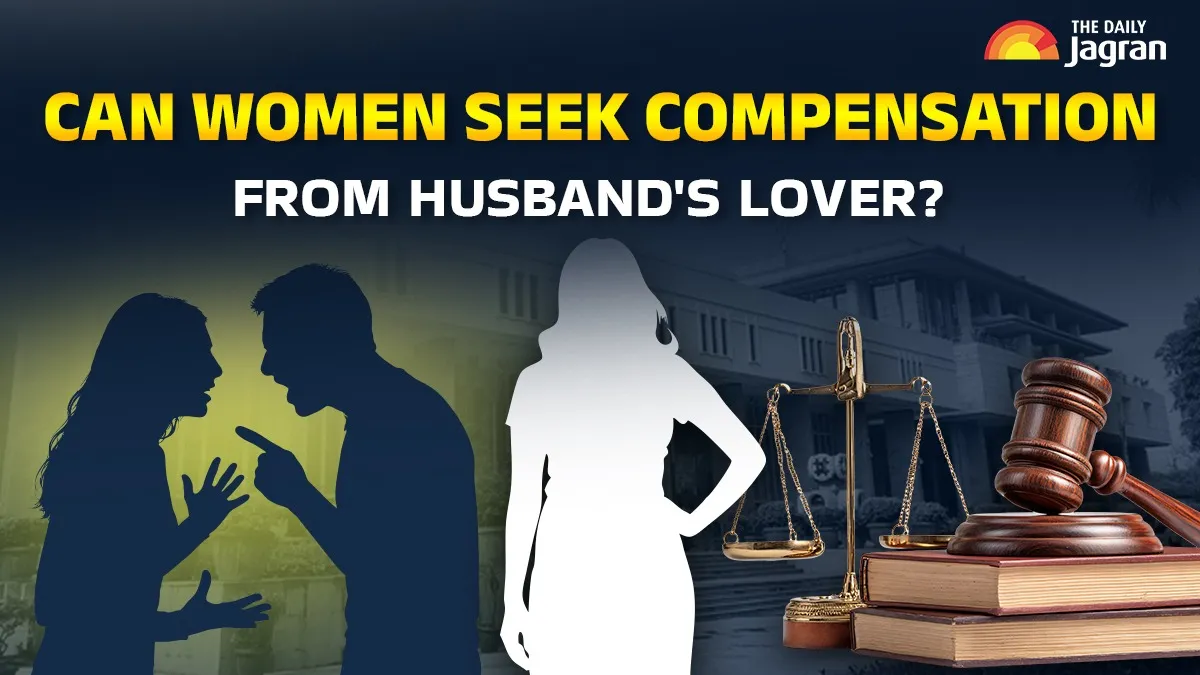- By Raju Kumar
- Tue, 28 Oct 2025 02:12 PM (IST)
- Source:JND
Adultery Case: The Delhi High Court made some remarks last month on a case related to adultery (extramarital affair), which has sparked a debate across the country regarding laws covering marital disputes. Justice Purushaindra Kumar Kaurav of the Delhi High Court stated, "If a marriage breaks due to a third party, or if the wife is deprived of her rights, she can claim damages from that person in a civil court."
Justice Kaurav made the observation last month on a petition filed by a woman who accused her husband of having an affair with another woman and demanded Rs 4 crore in compensation from his mistress. Since then, a debate has broken out across the country: In cases involving extramarital affairs, can a woman claim compensation from her husband's lover, or can a man claim compensation from his wife's lover?
ALSO READ: Rajasthan Officer’s Wife Draws Rs 37.54 Lakh Salary Without Working A Day; How Her Husband Helped
What Is The Ground Of Compensation From A Third Person?
The petition on which Justice Kaurav of the Delhi High Court commented is related to a complaint filed by a wife against her husband's mistress. The woman, who filed the petition, alleged that she got married in 2012 and gave birth to twins in 2018.
"My husband is a businessman. My married life was going well. Problems in my married life began when another woman joined my husband's business in 2021. That other woman started travelling with my husband on business trips. They became very close. In 2023, I overheard intimate conversations between my husband and his mistress. I also found evidence of this relationship on my husband's laptop. Despite the intervention of my husband's family, all this continued. My husband was seen with his mistress in public places, and later he filed for divorce," she stated in the plea.
Woman Seeks Compensation On 'Alienation of Affection' Principle
Following this entire sequence of events, the aggrieved woman filed a petition in the High Court against her husband and his mistress. The wife claims that the woman deliberately and maliciously interfered with her marriage, causing her mental and emotional distress. Therefore, she filed a petition in court under the "Alienation of Affection" principle, seeking compensation.
Husband And His Lover's Arguments
The husband argued in court that he is an independent individual and has the right to make his own decisions regarding his personal life. Every adult has the freedom to choose who they have a relationship with or befriend, as long as it is not a legally punishable offence, he argued.
His lover asserted that she had nothing to do with the marriage and therefore had no legal accountability towards the wife.
The Case May Become First Of Its Kind
Both the husband and his lover stated that if there is any dispute, the hearing should be held in the Family Court, not the High Court. Furthermore, they cited the Supreme Court's judgment decriminalising adultery. It is important to note that while the Supreme Court decriminalised extramarital affairs, it did not issue a license for them. If the current case in the Delhi High Court proceeds, it could become the first case of its kind.
What Did The High Court Say?
Justice Kaurav not only accepted the petition, but also directed that notices be sent to both the husband and his alleged lover. He stated that if a marriage breaks due to a third party, the wife can seek compensation in a civil court. Although adultery, or an extramarital affair, is no longer a crime, compensation can still be sought for the damages caused. This case is entirely related to civil law, and therefore, it will be heard in a civil court, not a family court.
What Is 'Alienation of Affection' Principle?
Justice Kaurav said that the case could become the first example of applying the "Alienation of Affection" principle. This principle essentially states that a person who deliberately destroys the love and trust in a marriage can be held legally responsible. The principle of 'alienation of affection', derived from Anglo-American common law, has been accepted by the Supreme Court of India in two of its judgments. Justice Kaurav also clarified that the allegations made by the woman in her petition will have to be proven.
What Happens Next In The Case?
The case will now be heard, after which the High Court will decide whether the husband's alleged girlfriend intentionally caused the breakdown of the woman's marriage through her wrongful conduct. If this is proven, it would be the first case in India where a court could order a third party involved in an extramarital affair to pay damages.

